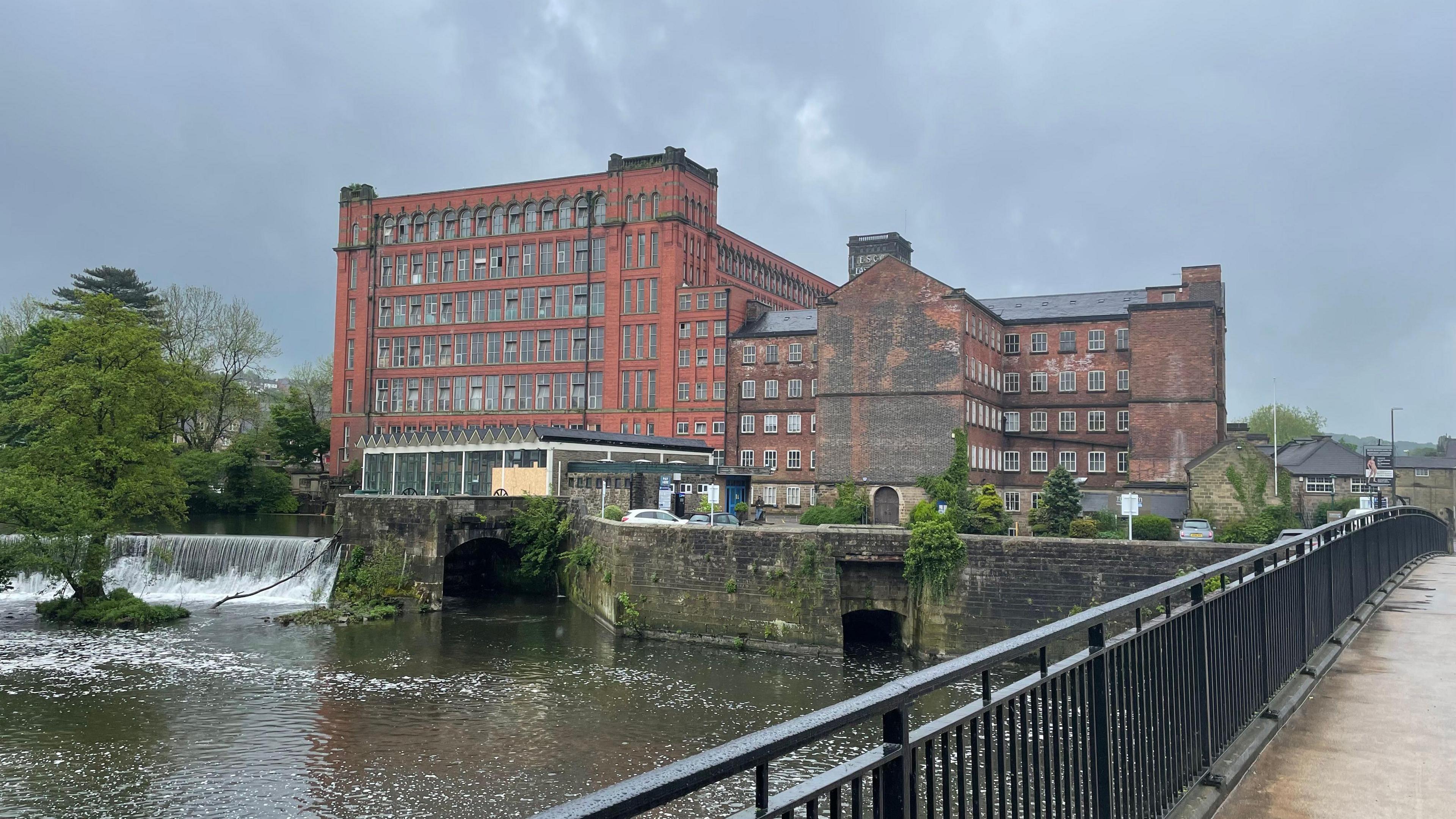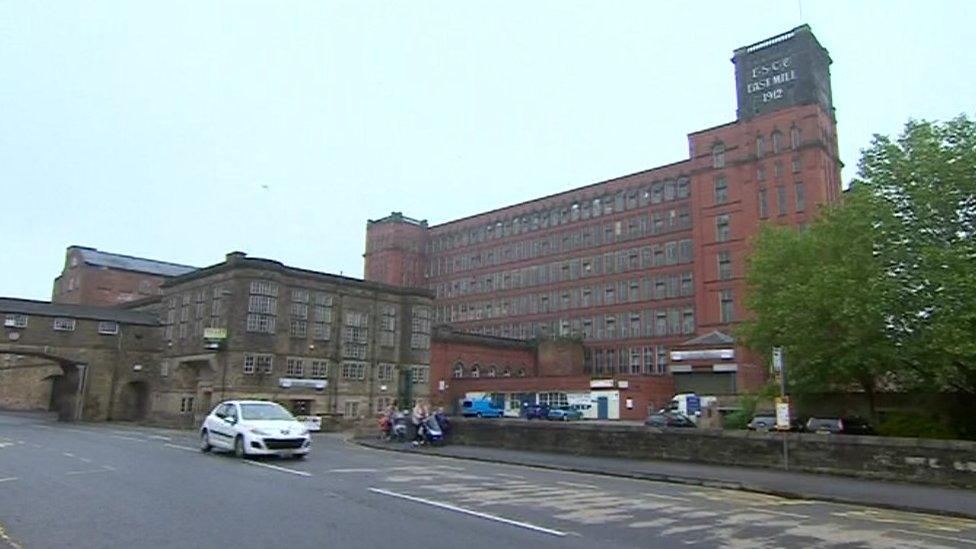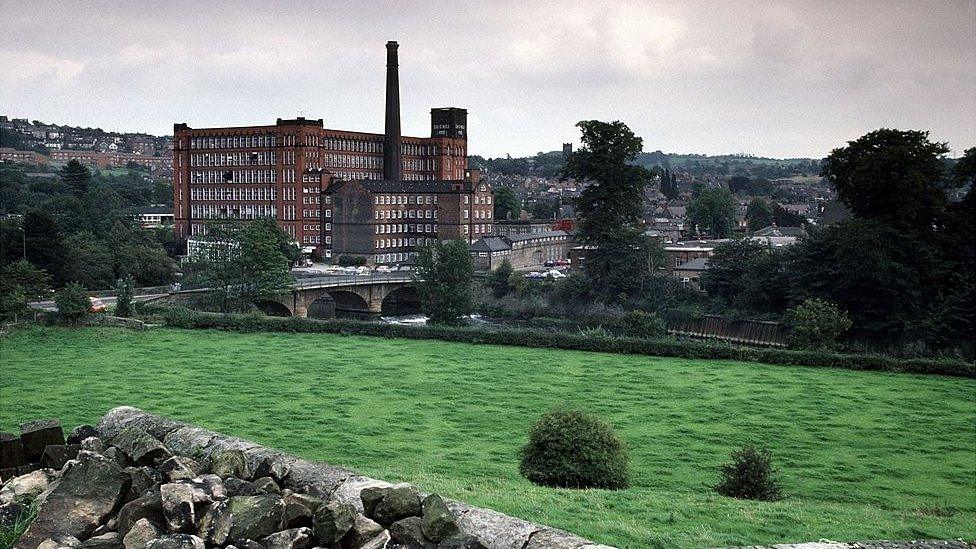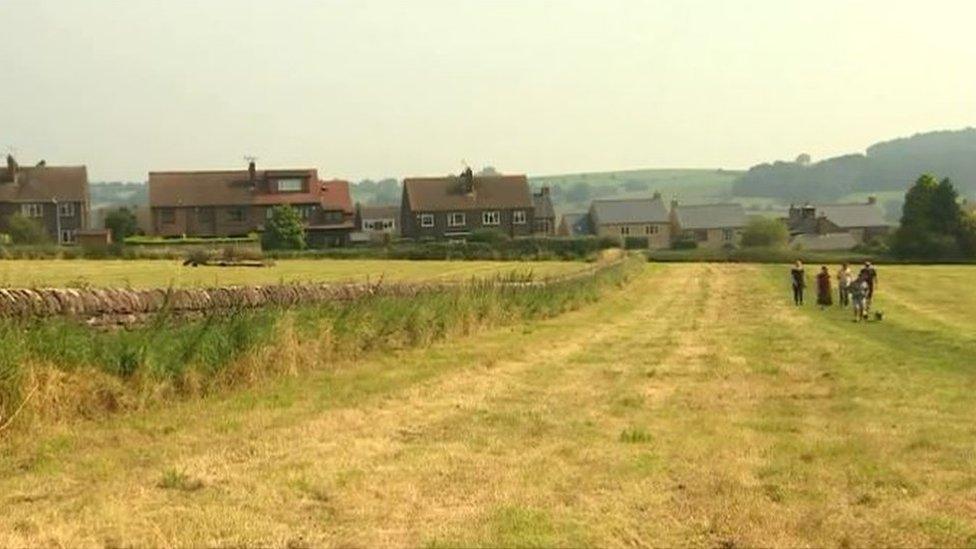'Grave concern' over valley's world heritage status

The "poor state of conservation" of the Belper Mills complex is highlighted in the new report
- Published
The world heritage status of Derbyshire's Derwent Valley Mills could be under threat due to repeated "inappropriate" developments.
A new report from the United Nations Educational, Scientific and Cultural Organization (Unesco), says it has "grave concern" about the site's future.
The historic mills - along a 15-mile stretch of the River Derwent between Cromford and Derby - were granted world heritage status in 2001.
That places the area on a similar footing to the Taj Mahal in India, the pyramids of Giza in Egypt and the Great Wall of China.

Securing permission for "The Landmark" building in Derby took more than two years, after concerns were raised due to its proximity to the site
In a report to its world heritage committee summit in India last week, Unesco wrote: "It appears that the development pressure on the property, coupled with the inability of the management system to safeguard its outstanding universal value, has reached such a level that, if not urgently addressed, may confirm an ascertained or potential threat.
"The committee may therefore urge the state party [the UK government] to halt all new developments which may have a negative impact on the outstanding universal value of the property, including those that have already been approved, until the review of local plans (outlining future earmarked development) by ICOMOS (International Council on Monuments and Sites) has been completed and its recommendations taken into account."
Liverpool was stripped of its world heritage status in 2021 after a UN committee found developments had threatened the value of the city's waterfront.
Unesco has objected to a number of proposed developments along the Derwent Valley.

Unesco's concerns
Unesco says it has reiterated its request to the government to reconsider its approval of "The Landmark" - a 17-storey tower of 202 apartments in Phoenix Street, Derby - 150m (500ft) from the former Silk Mill site, considered to be the world's first mechanised factory
It says it has also asked the government not to approve current plans for a development featuring what would be Derby's tallest building - a 19-storey block of 400 flats and office space in Bradshaw Way
Unesco has also urged the government not to approve plans to transform the former Eagle Market in Derby as part of a scheme that would see 850 homes, and new food, beverage and leisure activities
It has also asked the government to refuse plans to turn Crich Quarry into the Amber Rock water park resort

Unesco has also urged the government to "find alternative and sustainable proposals to address the poor condition of the Belper Mills complex".
However, it has also praised some recent changes, including the Museum of Making in Derby, the re-use of the Darley Abbey Mills and mixed-use redevelopment of Cromford Mills.
"Despite these welcome efforts to find alternative and sustainable proposals, the development of inappropriate proposals and the approval of several development projects against the recommendations... highlights the critical disconnect between the planning system and the protection of the outstanding universal value of the property," Unesco added.

Derby City Council leader Nadine Peatfield said the city recognised the value of having a world heritage site
Concerns over the world heritage site have previously been raised by councillors and campaigners.
Councillor Barry Lewis, chairman of the DVMWHS Partnership and leader of Derbyshire County Council, said: "We will make every effort to address the concerns of Unesco.
"But the mills are split across a number of different local authority areas, and the concerns raised do highlight the competing needs of sensitive heritage redevelopment and housing and business development.
"With many of the buildings in private ownership, maintaining and developing the site is a complex enterprise."
Nadine Peatfield, Derby City Council leader, said: "We're currently digesting the report and working with partners to get a better understanding of the next steps."
A government spokesperson added: "Protecting the heritage and industrial landscape of the Derwent Valley Mills site is a priority, and we will continue to work closely with Unesco and the heritage community to address the latest recommendations from Unesco."
Unesco has asked for an impact report to look at all developments in the Derwent Valley since 2001.
Follow BBC Derby on Facebook, external, on X, external, or Instagram, external. Send your story ideas to eastmidsnews@bbc.co.uk, external or via WhatsApp, external on 0808 100 2210.
- Published17 November 2022

- Published3 October 2022

- Published16 August 2020
